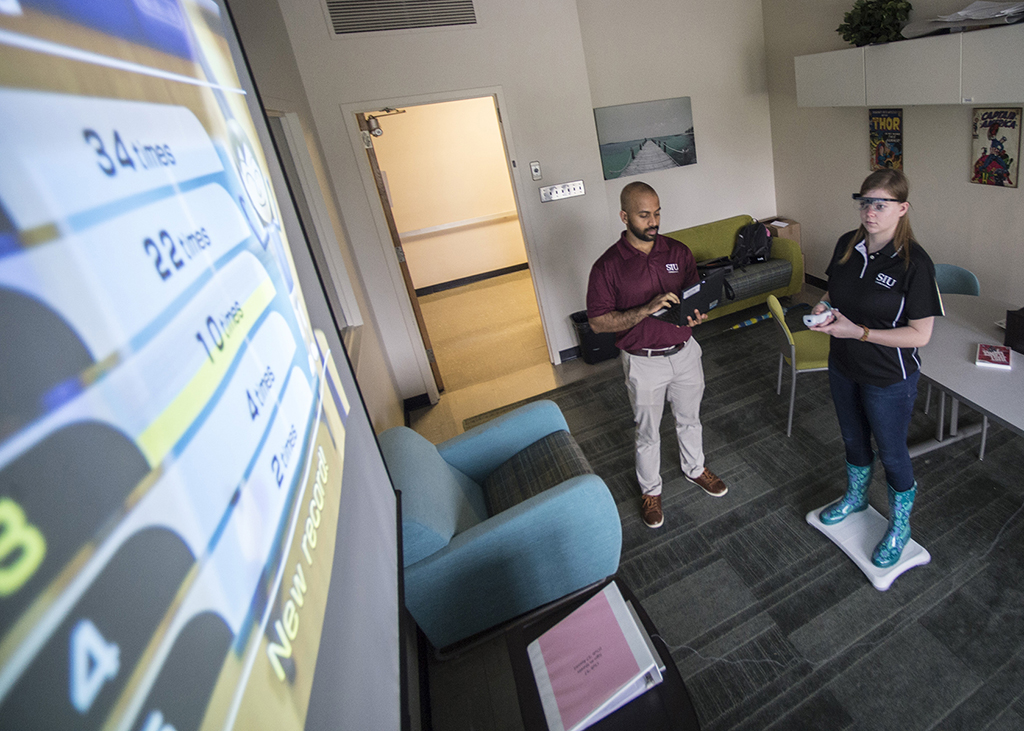
Since 2011, more than 37,000 people have died at the hands of the Nigerian terrorist organization Boko Haram. Marked as one of the deadliest terror groups in the world, they also stand as the leader in an almost unheard of war tactic: female suicide bombings.
Women as suicide bombers
Jordan Galehan, a doctorate student in criminology and criminal justice at Southern Illinois University Carbondale, first started looking into Boko Haram after noticing the huge difference in their usage of female suicide bombers compared to other groups.
“Boko Haram is distinct from other similar groups because of the number of women being utilized as suicide bombers,” Galehan said. “While other major terror groups have used women, Boko Haram uses them at increasingly higher rates.”
In the 1980s and 1990s, The Liberation Tigers of Tamil Eelam, a terror group in Sri Lanka, were the first to use women as suicide bombers. Over the years they were in play, 23 women engaged in these attacks.
Yet, in the case of Boko Haram, over 150 women acted as suicide bombers, putting women as 50 percent of the group’s bombers and the highest among all terror groups.
Using a comprehensive quantitative database on terror across the world, Galehan pulled all the information related to Boko Haram and the Nigerian region, coded for gender, and built her own complimentary qualitative study.
Galehan’s goal in creating this new dataset was to look at the context of the suicide bombing incidents to understand why this group has such high rates of female involvement.
“My study looks at what is happening in the region and how Boko Haram and Nigeria in general might be different from other nations,” Galehan said.
Why Boko Haram uses female suicide bombers
Galehan found many things in society and the culture that may contribute to this phenomenon, including the patriarchal and militarized environment. Nigeria also scores very low in gender development and equality, including literacy, education, employment, fertility health and other human rights.
While other groups must first recruit their fighters and then send them off for expensive training, Boko Haram has found a cost effective alternative in kidnapping and using women as their instruments of terror.
Additionally, the general perception of women as more gentle and nurturing gives them an added advantage as bombers.
“Because people don’t perceive women as violent or threatening, and the culture of modesty that prevents them from being searched, they are able to infiltrate areas and get past check points more effectively,” Galehan said.
How women get involved
While the combination of these social influences put Nigerian women in particular risk for a variety of unsafe circumstances, it also increases the continual danger of abduction.
In 2014, more than 200 Nigerian schoolgirls were kidnapped by Boko Haram, sparking the worldwide cry associated with the hashtag, #BringBackOurGirls. This generated so much attention, the group has really tried to capitalize on it, Galehan explained.
“One of the goals of terrorism and terrorists groups is to spread their message and have their grievances heard,” Galehan said. “By kidnapping these girls, they realized that they got a lot attention and they utilized the girls to benefit their cause.”
This triggered a continuing pattern of abductions, with several other groups of girls kidnapped in the following months and years. Galehan’s study found direct correlation to these abductions and the suicide bombings.
“The findings showed that because of these different things happening, women are very accessible and don’t need much training,” Galehan said.
While there is no definitive number to know how many of the women bombers were abducted and forced into the action, it appears to be a very high percentage, Galehan explained.
Stories of abducted women who escaped from these situations give valuable insight into the problem. When strapped to a bomb, some run for help and find ways to disarm the explosive. Other times, kidnapped women face such pressure they do not see a way to escape.
Unfortunately, some of the women do join the group willingly, often to escape conditions they feel are worse. Some marry militant fighters, while others join to gain money, respect and status. Still, the biggest majority have little choice in the matter at all, while those that join willingly often suffer from sexual victimization and coercion.
Bringing awareness to the issue
Galehan’s goal is to bring awareness to this issue and the many unsafe conditions in Nigeria that contribute to the danger so many women face daily. She also hopes to reduce the stigma that often surrounds women in these challenging situations and present alternatives to those facing these issues.
“I want to bring awareness to these issues so women don’t feel that they have to resort to these types of tactics,” Galehan said. “While they do have other opportunities, my goal is for them to start understanding their options and hopefully promote more gender equality in these areas.”
Moving forward, Galehan plans to continue her research on this topic and hopes to conduct more on the ground fieldwork in the future. Starting this fall, she will also be working as an assistant professor of criminology at Flagler College in St. Augustine, Florida.







